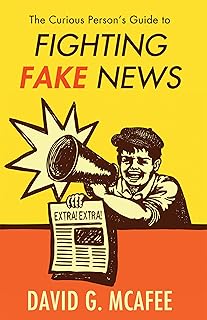In the wake of the U.S. election, a surge in false news stories on social media platforms like Facebook has sparked widespread concern. Studies reveal that fabricated articles garnered more engagement than legitimate news stories in the lead-up to the election. For instance, a fake story claiming that Pope Francis endorsed Donald Trump amassed nearly a million interactions before the polls.
Facebook, however, downplays these findings, asserting that fake news constitutes only a fraction of the content users encounter. Despite CEO Mark Zuckerberg’s dismissal of the impact of fake news on the election outcome, research indicates that exposure to false information can shape individuals’ beliefs and attitudes, potentially influencing opinions about political candidates.
Psychological studies, including research conducted by experts like Lisa Fazio from Vanderbilt University, demonstrate that repeated exposure to false information can lead people to believe it is true. This phenomenon, known as the “illusory truth effect,” highlights how mere repetition can sway individuals’ perceptions, even if they possess accurate knowledge.
Furthermore, a study by Fazio and colleagues revealed that the illusory truth effect extends beyond unfamiliar statements to contradicting established facts. Even individuals knowledgeable about specific topics can succumb to believing false information when it is reiterated, showcasing the pervasive impact of repetition on shaping beliefs.
Efforts to combat fake news, such as labeling disputed stories on social media platforms, may not effectively mitigate the illusory truth effect. Psychological research indicates that people tend to remember false information while disregarding disclaimers, perpetuating the belief in misinformation despite corrective measures.
Historical examples, like the misinformation surrounding the second Iraq war, underscore the challenges of correcting false narratives. Studies reveal that individuals often retain erroneous beliefs even after retractions, particularly when these beliefs align with preconceived notions or biases.
The persistence of false news poses a significant challenge in today’s media landscape, where misinformation can sway public opinion and influence political discourse. Addressing this issue requires a multifaceted approach, from individual vigilance in verifying sources to systemic solutions that limit the dissemination of deceptive content.
While there is no simple remedy to the proliferation of fake news, raising awareness about the illusory truth effect and encouraging critical evaluation of information can help mitigate its impact. By fostering a culture of media literacy and promoting responsible sharing practices, individuals can play a crucial role in combating the spread of misinformation in the digital age.
📰 Related Articles
- Youth Embrace Live Music Amid Social Media Ban Concerns
- Young Kid Influencers Spark Positive Change Across Social Media
- Why Prince Harry Lost Taxpayer-Funded Security: Impact on Entertainment News
- White Fox Boutique: Fashion Empire Thrives Through Social Media
- Western Digital Unveils High-Capacity Storage Solutions for Media Pros
📚Book Titles
- A New Era for Words: Social Media’s Influence on Language
- Digital Rhetoric: The Role of Social Media in Shaping Public Discourse
- Hashtag Activism and Language Evolution: How Social Media is Reshaping Conversations and Culture
- Digital Shadows: Mastering Your Online Identity for Privacy and Protection






